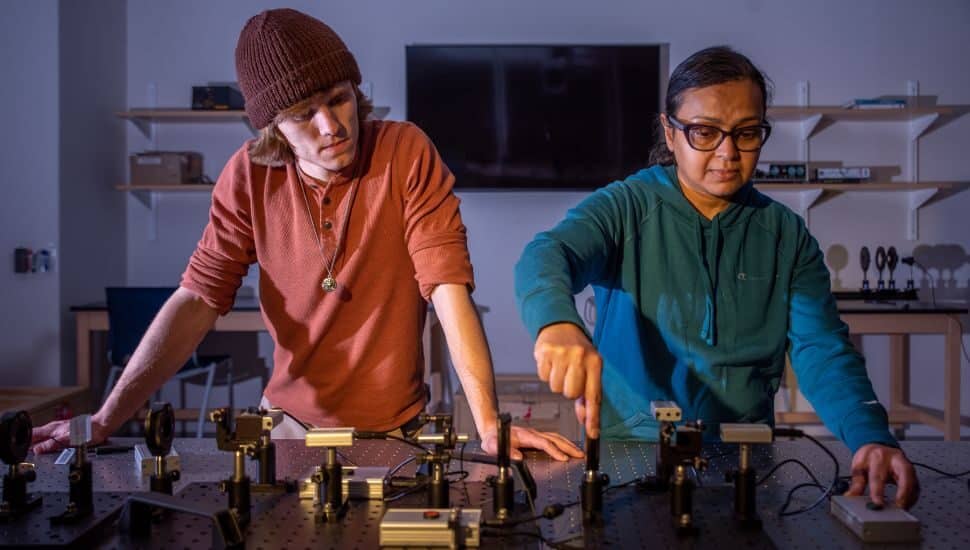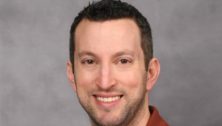One-of-a-Kind Bachelor’s, Master’s Program Takes Quantum Leap at WCU

As the first and only bachelor’s/master’s program of its kind in the U.S., a new 3-2 dual degree program in Quantum Science and Engineering (QSE) has launched to prepare students for a technical revolution — the emerging $3.2-billion quantum-computing market.
In partnership with the University of Delaware (UD), the 3-2 dual-degree program allows students to spend three years at West Chester University (WCU) earning a BS in physics and two years at the University of Delaware earning an MS in quantum science and engineering. The WCU-UD collaboration is at the forefront of preparing a new workforce that integrates the fields of computer science, physics, chemistry, and materials science.
“With this burgeoning new field, we have to ‘grow’ skilled experts,” said Associate Professor of Physics Brandon Mitchell, who leads the new dual-degree program at WCU and who was awarded a $450,000 National Science Foundation Grant in 2021 to explore new materials for quantum computing and next-generation displays. “This program, on the undergraduate and master’s level, is the pathway to a highly specialized workforce. Together, WCU and UD are early in this game. This new program lowers the financial burden and the time-to-degree, which is important in today’s economic climate, and will encourage students from all backgrounds to pursue a career in this important new field.”
The new QSE program at UD is a result of a recent $4 million National Science Foundation grant awarded to UD’s Matthew Doty, professor of materials science and engineering and director of UD’s Quantum Science and Engineering program, in collaboration with University of New Mexico’s Professor of Electrical and Computer Engineering Ganesh Balakrishnan, also director of New Mexico’s Established Program to Stimulate Competitive Research (EPSCoR).
With applications yet to even be imagined, Fortune Business Insights projects the QSE market to grow from $486 million in 2021 to $3.2 billion in 2028, an average annual growth rate of about 31 percent.
Just what is QSE? QSE focuses on understanding and exploiting the unusual behavior of particles and excitations governed by the laws of quantum mechanics. This improved control over the quantum world has already found its way into a tremendous number of applications spanning a broad range of fields. For example, quantum communication uses the phenomenon of entanglement to securely transmit data over large distances. Quantum computers can perform calculations that would take current classical computers decades or even hundreds of years, which will in turn have implications for medicine, finance and defense. Quantum materials applications include using 2D semiconductors for more efficient solar cells and quantum dots that can potentially be harnessed to drive ultralow power consumption devices. Quantum magnetic field sensors will enable improved functional brain imaging.
“We are excited to provide WCU physics majors with this unique opportunity to become part of the truly ground-breaking field of quantum science and engineering,” said WCU Dean of the College of Sciences and Mathematics Radha Pyati. “Collaborating with the University of Delaware on this critical initiative will not only benefit our students, but ultimately all those who live in our Commonwealth and the nation.”
Additional information about the program can be found here.
Learn more at West Chester University.
Connect With Your Community
Subscribe to stay informed!
"*" indicates required fields



































![95000-1023_ACJ_BannerAd[1]](https://vista.today/wp-content/uploads/2023/03/95000-1023_ACJ_BannerAd1.jpg)
















